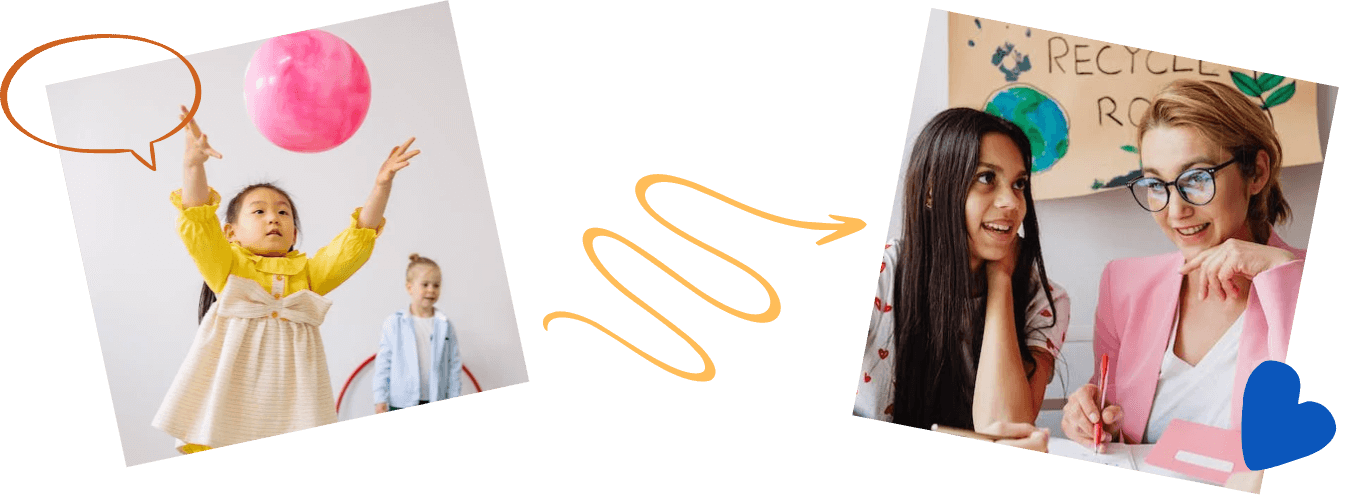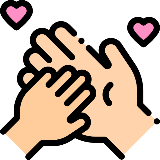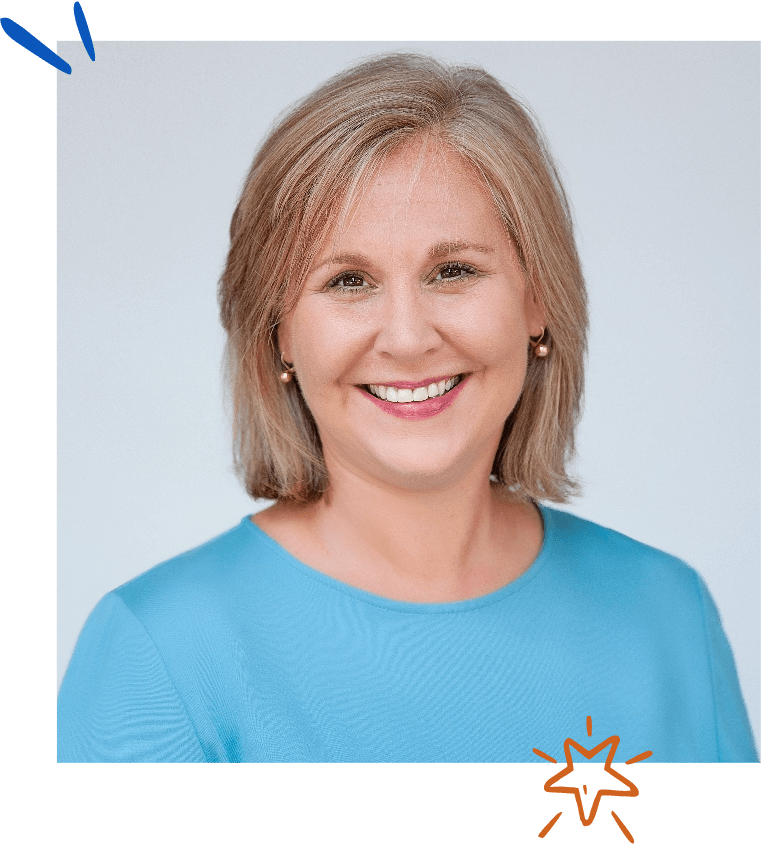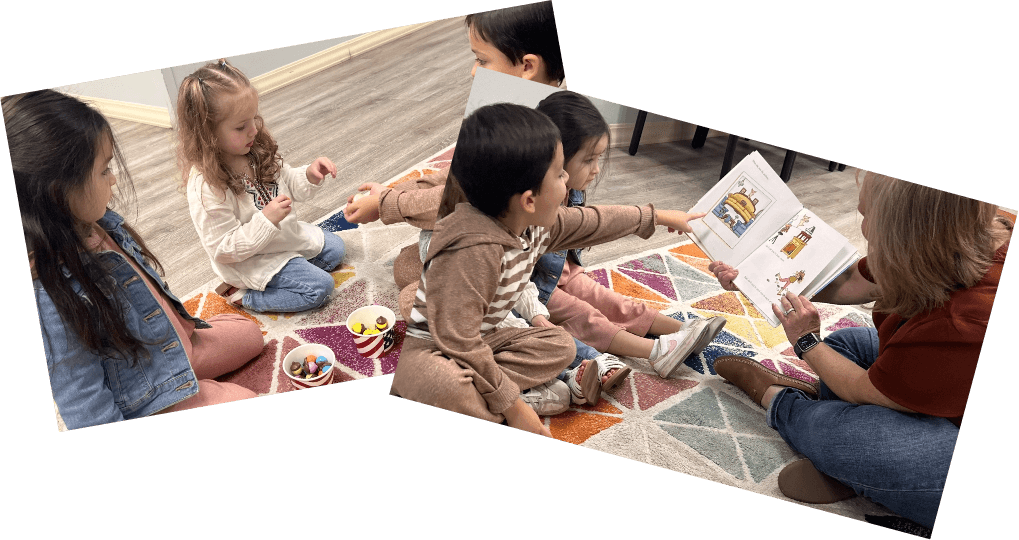Your Voice, Our Expertise

Our Story
At Spark Therapy we’re more than just speech therapists; we’re your partners on the journey to confident communication. With a passion for improving communication and empowering lives, our experienced team is dedicated to providing personalized, compassionate, and effective therapy services.
Our mission is simple: to help children of all ages overcome their speech, language or learning challenges and find their confidence. With a child-centered approach and individualized programs, we make it easy for you to take the first step toward a brighter future.

Commitment to Clear Communication
Our mission goes beyond speech therapy. We’re committed to providing a nurturing environment where you can build confidence, foster connections, and succeed in all aspects of life through effective communication.

Personalized Care
Tailored assessments and therapy plans for your unique needs.

Child-Centered Approach
Engaging techniques for our young clients.

Empowering Success
Expert therapists dedicated to your progress and confidence.

Flexible Scheduling
Sessions designed to fit your busy lifestyle.
Staff

Britany Kelly, MA CCC-SLP is the owner and lead Speech Language Pathologist at Spark Speech Language and Learning Services. She received her Masters of Arts degree in Communication Disorders from the University of Tennessee Knoxville and has worked as a Speech Language Pathologist for over 20 years. She has worked in the public school system as well as private practice. Britany holds a Certificate of Clinical Competence (CCC) through the American Speech Language and Hearing Association (ASHA) as well as a Tennessee Speech Language Pathology license.
She has been trained in numerous early language development programs, Orton Gillingham based reading systems, Dynamic Temporal and Tactile Cueing (DTTC) for Childhood Apraxia of Speech and is a sensory certified Speech Language Pathologist.
Britany and her husband have 5 children and 2 grandchildren. In her spare time, she enjoys reading and traveling as well as spending time with her family.
Mae Gasa, C-SLPA is a Speech Language Assistant at Spark Speech Language and Learning Services. She received her SLPA certification from Northern Arizona University and her national clinical certification from the American Speech Language and Hearing Association (ASHA). Prior to becoming a SLPA, Mae worked as an assistant in the speech and language department of a local elementary school for 6 years. Her love of children and passion for helping to empower them with the ability to communicate is what inspired her to become a SLPA.
Mae and her husband have 1 daughter and 2 granddaughters. In her free time, she enjoys reading, cooking, traveling and spending time with her family.

Frequently Asked Questions
Should I have my child evaluated?
If you, your child’s pediatrician or teacher has concerns about their speech, language or learning, call us to discuss the concerns or to set up an appointment. Consultations are available free of charge.
How long does an evaluation take and what does it entail?
Evaluation times vary depending on the concerns being addressed as well as the child’s level of attention and cooperation. An evaluation includes a thorough assessment by the SLP using a standardized protocol as well as observation and family input. The family will be provided with a written report as well as time to meet with the SLP to discuss results and develop treatment goals if needed.
What is speech/language therapy?
Speech therapy is specialized treatment designed by a Speech Language Pathologist (SLP). Individualized therapy goals are based on the results of a thorough evaluation of suspected delayed or impaired skills and always include parent input.
How will my child benefit from therapy?
Children experiencing speech, language or learning difficulties often feel frustrated. This can result in acting out or low self-esteem. Speech therapy is designed to be fun, but effective in improving speech, language, and/or literacy skills and usually results in decreased frustration and increased confidence.
How long will my child be in therapy?
Every child’s level of need and rate of progress is different. Progress is measured by detailed data obtained during every session. Speech therapy can last a few months to several years. At Spark, parents are encouraged to be a part of their child’s therapy when possible and are provided with activities to take home to assist with carryover of skills. Family involvement and home practice are proven to increase a child’s rate of progress.
Does insurance cover therapy?
Sometimes. Every insurance policy is different. Many companies pay for a limited number of sessions per calendar year or during a lifetime. Others do not cover speech/language therapy at all. Treatment for dyslexia or learning disorders is not covered by insurance.
Does Spark accept my insurance?
We do not accept insurance at this time. We do, however, provide a superbill monthly so that you may submit it to your insurance company for reimbursement. You will be provided with a Good Faith Estimate of what your services may cost after the initial evaluation.
Do I need a physician referral?
A physician’s order is only required when filing with insurance or submitting a superbill for re-imbursement.
Do you provide group therapy?
Yes, we have a few group options available. Depending on the need, we provide social groups, articulation groups and early language/pre-literacy groups.
Will you provide therapy at my child’s school?
When possible, we will provide services at private schools and preschools.
What We Do
Speech/Articulation
Articulation is the production of speech sounds. A child begins speaking between 9-12 months of age. Speech sound production develops and becomes more refined between ages 1-6. A general rule of thumb is that by age 2, a stranger should understand 50% of a child’s speech, 75% by age 3 and 100% by age 4. Articulation should be evaluated and treated at an early age to prevent frustration and potential reading issues.
Language
Language skills can be separated into receptive skills (what a child understands) and expressive skills (a child’s ability to express their thoughts, wants, and needs). Language development begins before birth and continues throughout childhood. A child with a receptive language impairment may have difficulty following directions, answering questions, comprehending an age-appropriate story or conversation or identifying vocabulary. A child with an expressive language impairment may not be speaking at all or may be using one or two word phrases when other children his/her age are using complete sentences. A child with an expressive language impairment may also struggle to use a variety of vocabulary words or effectively communicate their wants and needs. Children struggling with language development should be evaluated as early as possible since treatment is most effective in the early years.
Fluency
Fluency refers to stuttering or the uninterrupted flow of speech. Stuttering includes repetitions of sounds within words, repeating words multiple times within a sentence, or obvious pauses within a sentence or conversation. Many children stutter between 3-5 year of age as their language skills are developing at a rapid rate. This type of stuttering is normal and usually lasts a few months. Stuttering that persists longer than 6 months or causes great frustration should be evaluated.
Dyslexia
Dyslexia is a neurobiological disorder that is characterized by difficulties in reading, writing and spelling. These difficulties result from a deficit in the phonological component of language and are present despite average to above average cognitive abilities and effective classroom instruction. According to the Dyslexia Research Institute, approximately 10-15% of the US school population has dyslexia, however only 5% of students with dyslexia are properly identified and given support. An estimated 60% of students diagnosed with ADHD also have dyslexia. Difficulties resulting from dyslexia become more and more apparent as a student moves through school, therefore early diagnosis and treatment is crucial to a child’s academic success and self-esteem.
Phonological and Phonemic Awareness
Phonological awareness is the ability to recognize that spoken words are made up of individual sound parts. This includes skills such as rhyming, alliteration, segmenting words into syllables, and identifying beginning and ending sounds in a word. Phonemic awareness is the most advanced skill of phonological awareness and involves the ability to hear, identify and manipulate sounds within a word. These skills are the foundation of reading and must be evaluated and treated as early as possible to minimize reading struggles throughout the school years.
Social Language Disorder/Pragmatics
Pragmatics refers to the socially appropriate use of verbal and nonverbal language. Children with a social language disorder may have difficulties knowing what to say, how to say it and when to say it. They may have difficulty using language for a specific purpose, changing their language depending on the person they are speaking to or the situation that they are in, and following appropriate social rules for communication (staying on topic, taking turns, understanding body language). Children with a pragmatic language disorder often process language literally and may have difficulty understanding what others are trying to communicate. Social language disorders are common in children with a diagnosis of Autism Spectrum Disorder (ASD) or ADHD. Social Language Disorders should be evaluated and treated as early as possible to prevent social isolation and stress during social interactions.
Autism Spectrum Disorder/Asbergers (ASD)
ASD is a lifelong personality and learning difference that affects people in different ways and in varying degrees. Individuals with autism struggle with understanding what other people think and feel. They also have difficulty expressing themselves effectively both verbally and nonverbally. Children with ASD may have problems with learning. Their skills may develop unevenly and they often have a wide range of strengths and weaknesses. Signs of autism usually appear between birth and age 3. Common signs include a lack of eye contact, narrow range of interests or intense interest in certain topics, repetitive behavior, high sensitivity to sensory input, difficulty adapting to change in routines, and difficulty understanding and using language. Early intervention is critical. Children with ASD often need a variety of interventions including speech/language therapy to assist in language development, implementation of visual schedules, as well as other strategies to insure the best possible outcomes for the student and their family.
Augmentative and Alternative Communication (AAC)
Augmentative and Alternative communication (AAC) refers to any means of communication that is not verbal. AAC describes multiple ways to communicate, either temporarily or permanently, that either supplement or compensate for severe expressive language impairments. AAC methods include picture exchange systems, IPAD/tablet programs, or dedicated communication devices. A Speech Language Pathologist will usually attempt a variety of speech or language interventions before recommending an AAC evaluation.

Should I have my child evaluated?
Your child should be evaluated by a Speech Language Pathologist (SLP) any time that you, your pediatrician, or teachers have concerns in any of the following areas:
Understanding your child’s speech
Using age-appropriate sentence length
Answering questions
Following directions
Comprehending a story
Accurately expressing his/her thoughts and ideas
Following the social rules of communication
Stuttering/Fluency
Understanding letter/sound correspondence
Rhyming and/or manipulating sounds in words
Reading
Spelling
What Our Clients Have to Say
The progress we’ve seen in our son’s communication skills is incredible. He’s more confident and expressive now.
Sarah T., Proud Parent